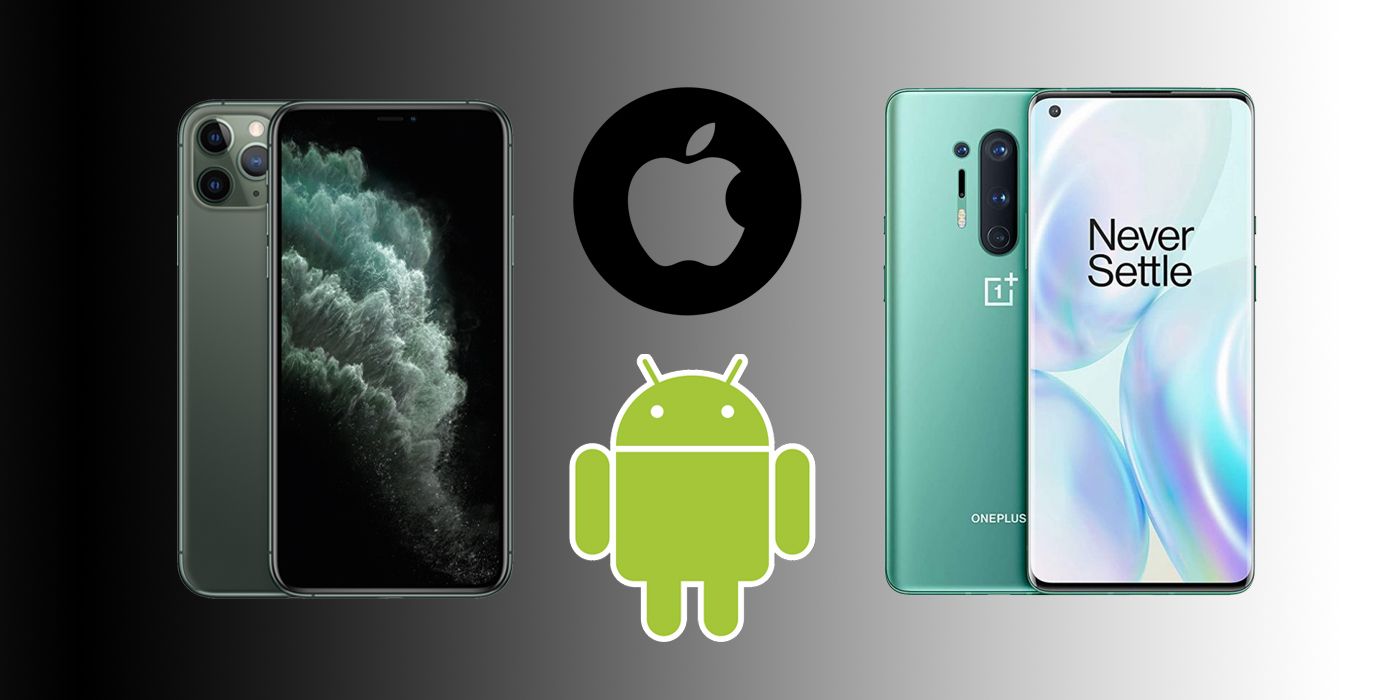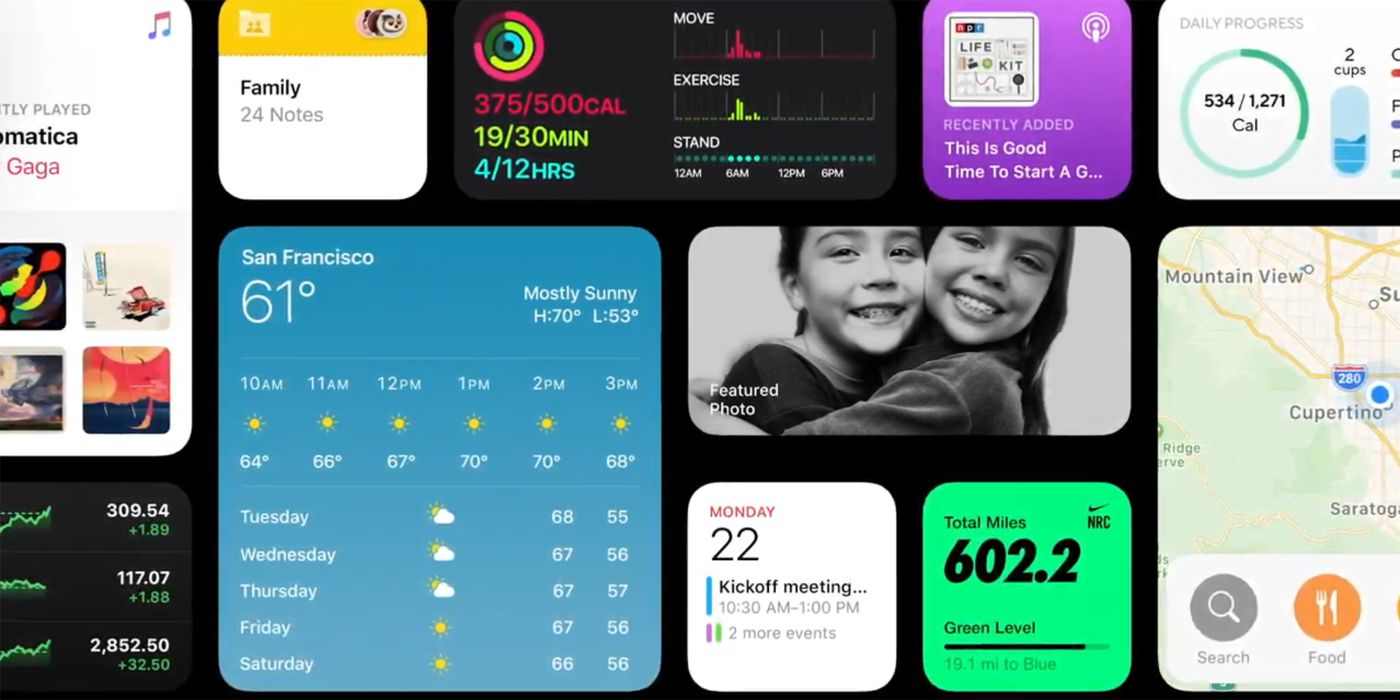
Apple's recently announced iOS 14 update has been the butt of many jokes due to comparisons to the user interface and feature set of Android. It may be hard to avoid the eye-roll-inducing jokes but it's worth acknowledging what's similar and what's different.
Apple held its annual WWDC event throughout the week, beginning with a keynote address that provided an overview of Apple's next level of software plans. It covered updates to just about every Apple operating system from iPad to Mac and introduced a few key changes. The most notable of these announcements was probably the confirmation that Apple will switch to making its own chips for Macs rather than contracting Intel for them; a change that could have implications across the company's entire product line. The second biggest news, though, was the list of changes for iOS 14.
The problem with the iOS 14 news is the same problem with all iPhone update situations: Apple's mobile operating system is consistently behind Android. It's not that Google is just more innovative than Apple or something. The advancements mostly stem from the fact that Apple is the only company making devices that use iOS, whereas hundreds of companies make phones that use Android. Iteration cycles come up more frequently as a result, so once some new feature catches on with Android users, Apple is immediately playing catch-up.

The biggest part of the iPhone segment of the WWDC keynote focused on App Clips. These easy-to-use, bite-sized app experiences captured Apple's vision for how users will handle commerce with their iOS 14 devices, but it's also just Apple's take on a nigh-identical Android feature called Instant Apps, which debuted about two years ago.
iOS 14's widgets and home screen App Library are eye-opening options that will change how everyone's iPhone home screens look. The new widgets are an improvement because they pack more information into each square, offer more size customization, and now come in far more color options. That makes them on par with the same feature's implementation on "ancient" devices like 2015's Samsung Galaxy S6. The App Library gives the user options to organize apps into folders based on different themes and also floats recently added or frequently used apps to the top. Some of its features aren't part of stock Android right now, but roughly 90% of that functionality has been present on Android devices since before the iPhone 8 released.
The theme continues from there. The Maps update that shows cycling paths and electric vehicle charging stations? Those exist on every version of Google Maps (although the Android version doesn't automatically detect which kind of charger your car needs... for now). The impressive Translate app is a function Android has had baked into the OS and the Google app for years. The most celebrated and underrated upgrade – the option to add third-party apps as defaults for email and browsers – is about as old as Android itself. One of the coolest updates is the addition of threaded replies in group chat conversations inside of the native iOS Messages app. This option doesn't exist in most Android phones' default messaging apps, but tons of alternatives, like Facebook Messenger, can be used as the device's text messaging app, and many of those also do threaded replies, so even that feature is still an option on most Androids. Even those super snazzy digital car keys have existed on Android since 2016.
After 600 words and tons of research, the only meaningful additions announced for iOS 14 that don't already exist on Android are the updates for Memoji. Of course, there are avatar platforms on Android such as Bitmoji, but Memoji are natively implemented in a way that Android's avatar alternatives simply aren't. Fortunately, performance, simplicity, and familiarity across the ecosystem are the primary reasons Apple users stick to iPhones. Those things will all remain with iOS 14. Just keep in mind, if you're an iPhone lifer, that any iPhone vs. Android argument online might not go in your favor right now.
from ScreenRant - Feed https://ift.tt/31qNf90

0 Comments